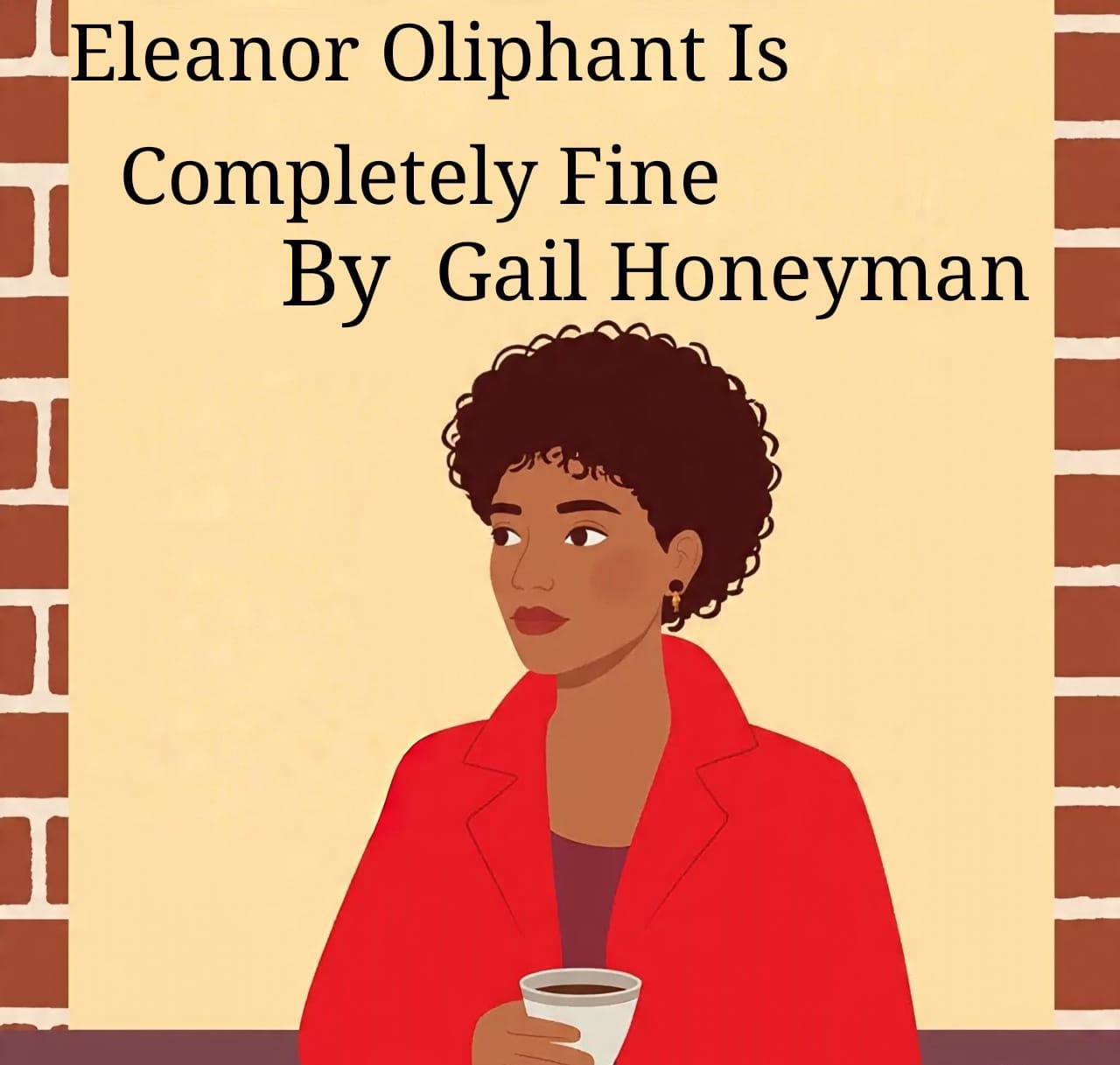A Story of Hope: How 'Eleanor Oliphant Is Completely Fine' by Gail Honeyman Talks About Mental Health with Kindness

Books about mental health often take two routes—either they dramatize pain or drown in sadness. But then there are stories like Eleanor Oliphant Is Completely Fine that strike a gentle, truthful balance. Gail Honeyman doesn’t write to shock the reader or to dramatize emotional struggles. Instead, she invites us into the quiet, often overlooked corners of a person’s life and shows us what healing can really look like.
Through the eyes of Eleanor, the novel explores loneliness, trauma, and the importance of human connection—all with unexpected warmth, dry humor, and remarkable sensitivity.
Who is Eleanor Oliphant?
Eleanor is not your usual heroine. She’s socially awkward, rigid in her routines, and brutally honest—sometimes painfully so. She has a very specific way of living: the same food, the same clothes, the same Friday night bottle of vodka. To the outside world, she seems strange. But to Eleanor, everything makes perfect sense.
What makes her character stand out is not her quirks, but her honesty. She doesn’t pretend to be okay. She simply insists that she is. “I’m completely fine,” she says—again and again. But as readers, we gradually sense the silence behind her words. There’s more than what she’s telling us—and maybe even more than she realizes herself.
Honeyman never rushes Eleanor’s story. Instead, she allows readers to walk alongside her, one step at a time, through the life she’s carefully constructed to protect herself from the world.
Mental Health Told Through Everyday Moments
Unlike books that depict mental health through dramatic breakdowns, this novel shows it through small, quiet details. The empty weekends. The awkward office interactions. The fear of social contact. The isolation that feels normal to Eleanor, until small changes begin to disrupt her pattern.
It’s in these disruptions—new friendships, unexpected kindness, a slowly shifting routine—that the story finds its heartbeat.
The novel makes a powerful point: healing isn’t always loud. It’s not about sudden transformation. It’s about tiny cracks letting in a little light. A smile from a stranger. A colleague who cares. A conversation you didn’t expect. These are the things that begin to soften Eleanor’s hard outer world.
Honeyman uses these ordinary experiences to explore complex topics like:
- Loneliness and social isolation
- The long-term effects of childhood trauma
- The quiet pain of living without connection
- The fear of being vulnerable after being hurt
But what makes the book special is how it presents these issues with compassion, never pity.
Kindness as a Healing Force
At the core of Eleanor’s journey is one simple thing: kindness. Not grand gestures, not deep therapy sessions—just small, consistent acts of kindness. A coworker who checks in. A stranger who listens. People who don’t judge her for being different.
These interactions don’t fix everything overnight. But they start to build something Eleanor has never really had: trust.
The book reminds us that sometimes the biggest difference in someone’s life comes from the smallest actions. Just being present, patient, and open-minded can mean the world to someone who’s used to silence.
Why You Should Read This Book
Eleanor Oliphant Is Completely Fine is not a book that preaches about mental health. It simply shows you a life where things are not “fine,” and gently asks you to understand. Through Eleanor’s perspective, you start noticing the quiet struggles of people around you—and maybe even your own.
It’s a book for:
- Readers who enjoy character-driven fiction
- People who want to understand mental health from a more human lens
- Anyone who has felt alone, misunderstood, or stuck in routine
- Fans of A Man Called Ove or The Rosie Project
The tone is warm, often funny, and surprisingly hopeful. You might laugh in one chapter and pause in the next to wipe away a quiet tear. That balance of emotion is what makes it unforgettable.
Gail Honeyman has written something rare: a novel that speaks about emotional pain without making it overwhelming, and about recovery without making it unrealistic. Eleanor Oliphant Is Completely Fine doesn’t promise happy endings, but it does promise that change is possible—even if it starts with something as small as a shared lunch or an unexpected conversation.
And that’s the real power of this book. It reminds us that behind every “I’m fine,” there might be a story waiting to be understood. We just have to listen.